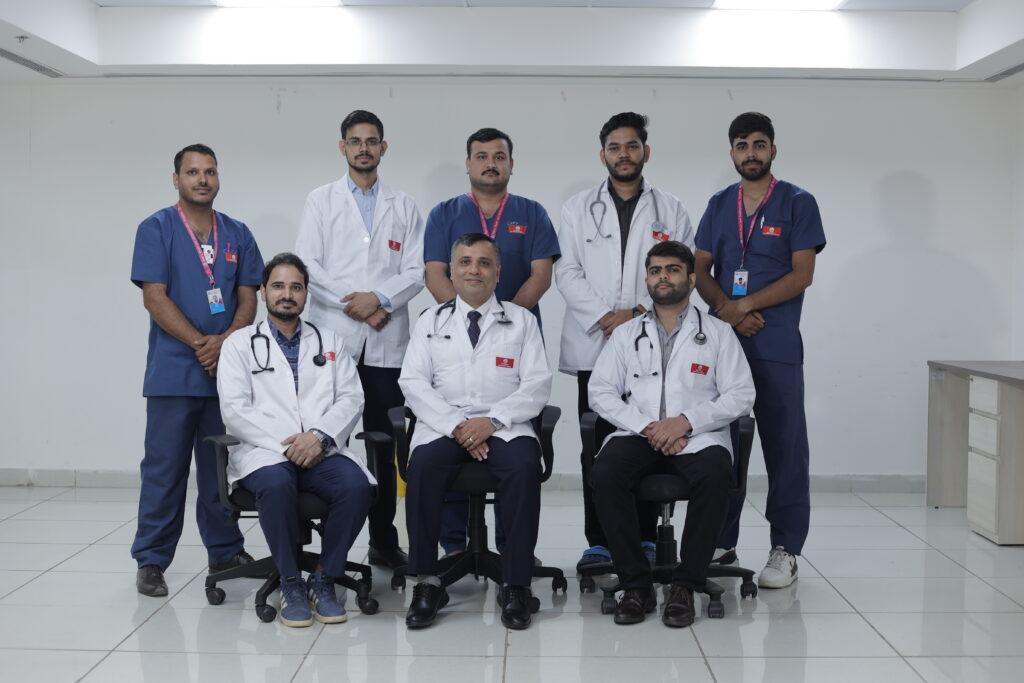What Symptoms Indicate That You Should Consult a Heart Doctor?

Heart disease remains a significant global health concern, making early recognition of warning signs essential for preventing serious complications. If you experience specific symptoms, seeking consultation with a heart doctor without delay is vital. Timely medical attention from experts at the best hospital can help identify and manage underlying cardiovascular issues effectively. Below are the key symptoms that may indicate the need for a heart specialist:
1. Chest Pain or Discomfort
Chest pain, medically referred to as angina, is one of the most common indicators of heart problems. It often feels like pressure, squeezing, or burning in the chest.
- When to be concerned:
- Pain worsens with physical activity but subsides with rest, potentially pointing to coronary artery disease.
- Severe pain accompanied by shortness of breath could signify a heart attack.
If you experience these symptoms, consult a heart specialist immediately for a proper diagnosis and intervention.
2. Shortness of Breath
Unexplained breathlessness, especially during mild activities or rest, may indicate:
- Heart failure: Inability of the heart to pump blood efficiently.
- Valvular heart disease: Dysfunction in heart valves causing blood flow irregularities.
It’s crucial to visit the best hospital in Faridabad for a detailed evaluation to rule out severe cardiovascular conditions.
3. Palpitations or Irregular Heartbeat
The sensation of fluttering, pounding, or an irregular heartbeat, known as arrhythmia, may signal underlying heart rhythm issues.
- Warning signs:
- Episodes of skipped or rapid heartbeats.
- Associated dizziness or lightheadedness.
Arrhythmias range from benign to life-threatening, so a consultation with a doctor is necessary for accurate diagnosis and treatment.
4. Persistent Fatigue or Weakness
Excessive tiredness, even after proper rest, can be linked to:
- Heart failure: Reduced circulation impacting oxygen delivery to the body.
- Blocked arteries: Reduced blood flow to the heart muscle.
If fatigue disrupts your daily life, seek expert care to address potential cardiovascular causes.
5. Swelling in the Lower Body
Swelling in the legs, ankles, or feet (edema) often indicates fluid retention due to heart failure.
- While other conditions like kidney problems may also cause swelling, visiting a heart doctor in Faridabad can help determine the root cause.
6. High Blood Pressure
High blood pressure is a silent but significant risk factor for heart disease. Severe cases may present with symptoms such as:
- Persistent headaches.
- Nosebleeds.
- Dizziness.
Monitoring and managing blood pressure can prevent complications like heart attacks or strokes.
7. Dizziness or Fainting
Sudden dizziness or fainting may result from inadequate blood flow to the brain caused by:
- Low blood pressure.
- Heart valve disease.
- Heart failure or arrhythmias.
These symptoms should never be ignored, as they could indicate serious heart issues requiring immediate attention.
8. Chronic Cough or Wheezing
A persistent cough, especially if producing pink or white mucus, could be linked to heart failure. Fluid buildup in the lungs often leads to wheezing or difficulty breathing.
Consulting a heart doctor in Faridabad will help rule out respiratory conditions and address any cardiovascular concerns.
9. Pain Radiating to Other Areas
Heart-related pain isn’t always confined to the chest. It can radiate to the arms, back, neck, jaw, or even stomach. Such pain often signals a heart attack and demands immediate care at a hospital equipped to handle emergencies.
10. Risk Factors Without Symptoms
Even without noticeable symptoms, individuals with the following risk factors should seek preventive heart care:
- Family history of heart disease.
- Conditions like diabetes, high cholesterol, or hypertension.
- Unhealthy habits such as smoking or excessive alcohol consumption.
- Sedentary lifestyle.
Routine check-ups at the hospital can help identify potential risks early and implement preventive measures.
When to Seek Emergency Medical Attention
Certain symptoms require urgent medical care, such as:
- Severe chest pain lasting longer than a few minutes.
- Extreme difficulty breathing.
- Sudden weakness, numbness, or loss of consciousness.
In such cases, head to the nearest best hospital in Faridabad with a dedicated cardiology department for immediate intervention.
Choosing the Best Heart Doctor
Selecting the right cardiologist and hospital is critical for effective treatment. Look for:
- Advanced diagnostic facilities, including ECG, echocardiograms, and stress tests.
- Specialists experienced in procedures like angioplasty and bypass surgery.
- Comprehensive post-treatment care for long-term heart health.
Conclusion
Heart health is integral to your overall well-being. Recognizing early warning signs and consulting a heart specialist ensures timely diagnosis and treatment, reducing the risk of complications. Whether experiencing symptoms or managing risk factors, visiting the best hospital in Faridabad can make all the difference in protecting your heart health.


